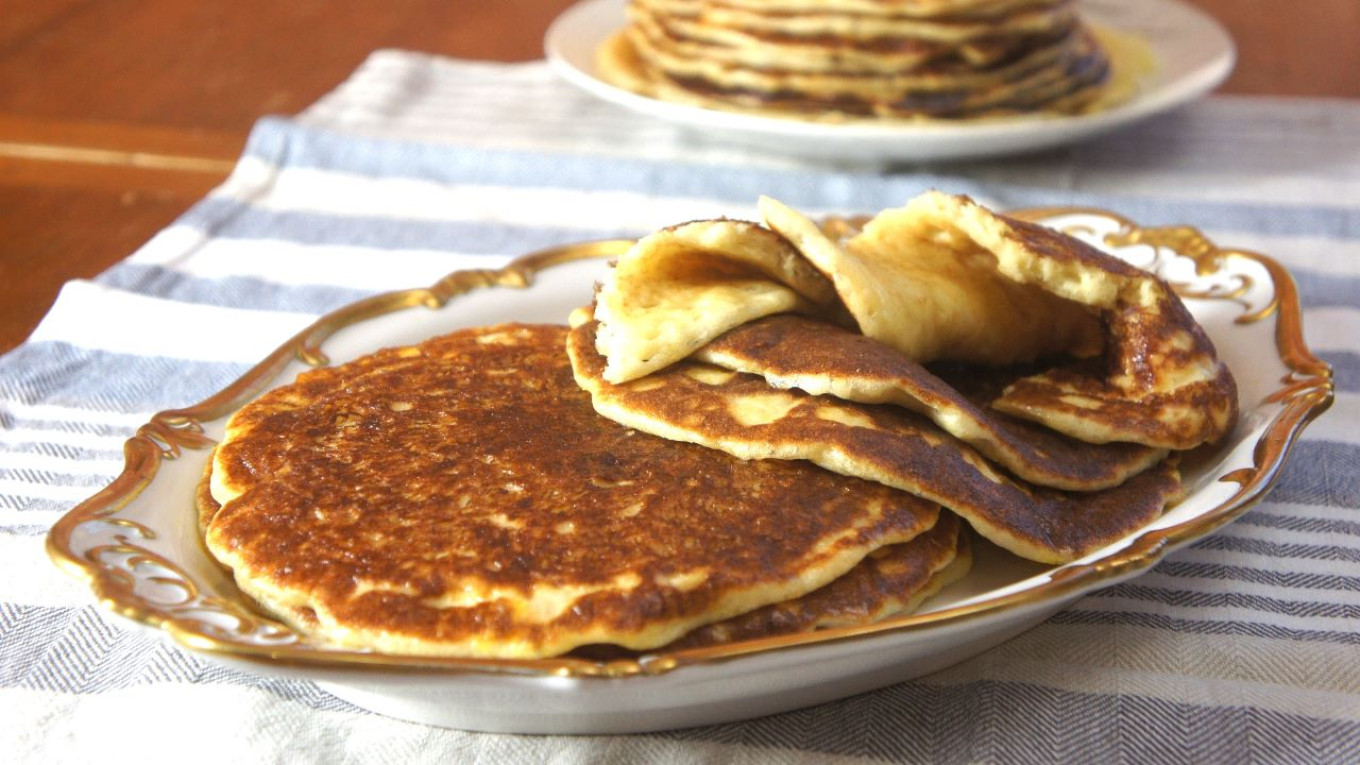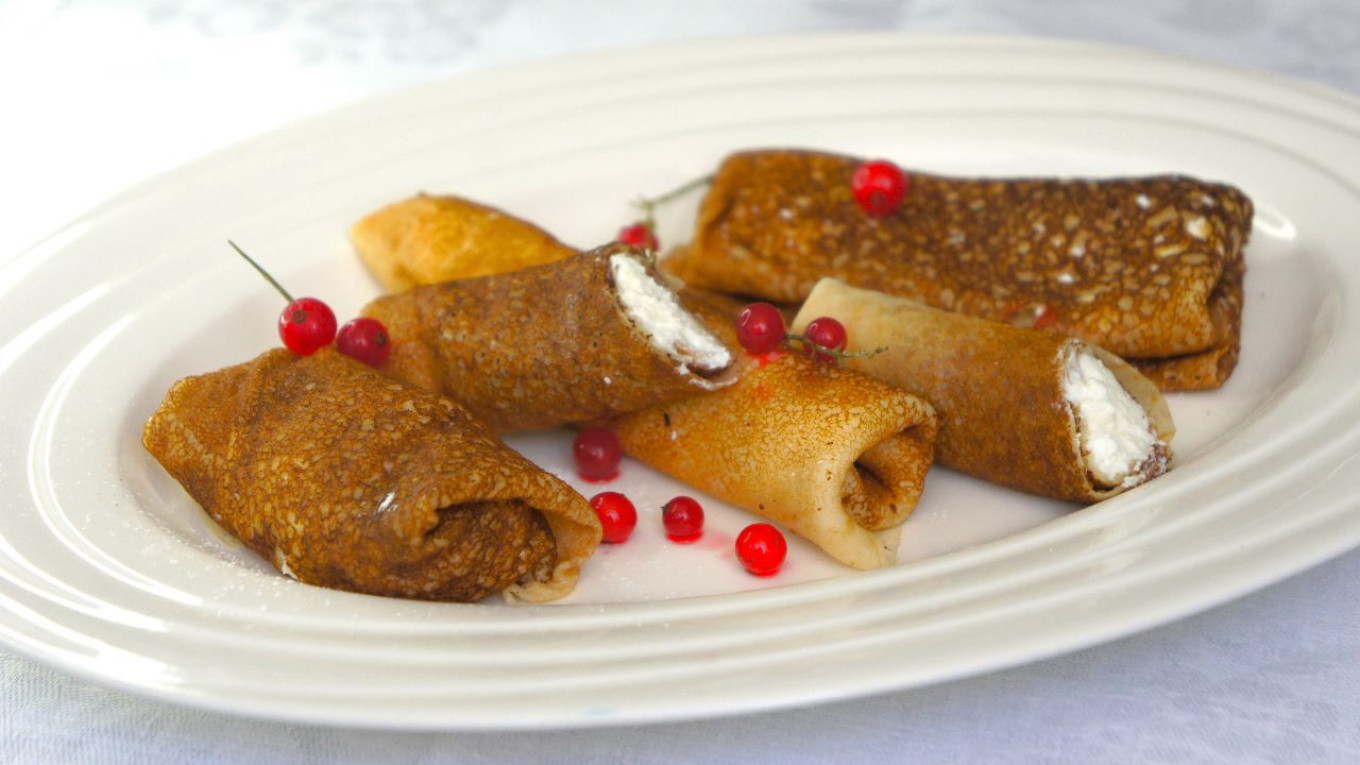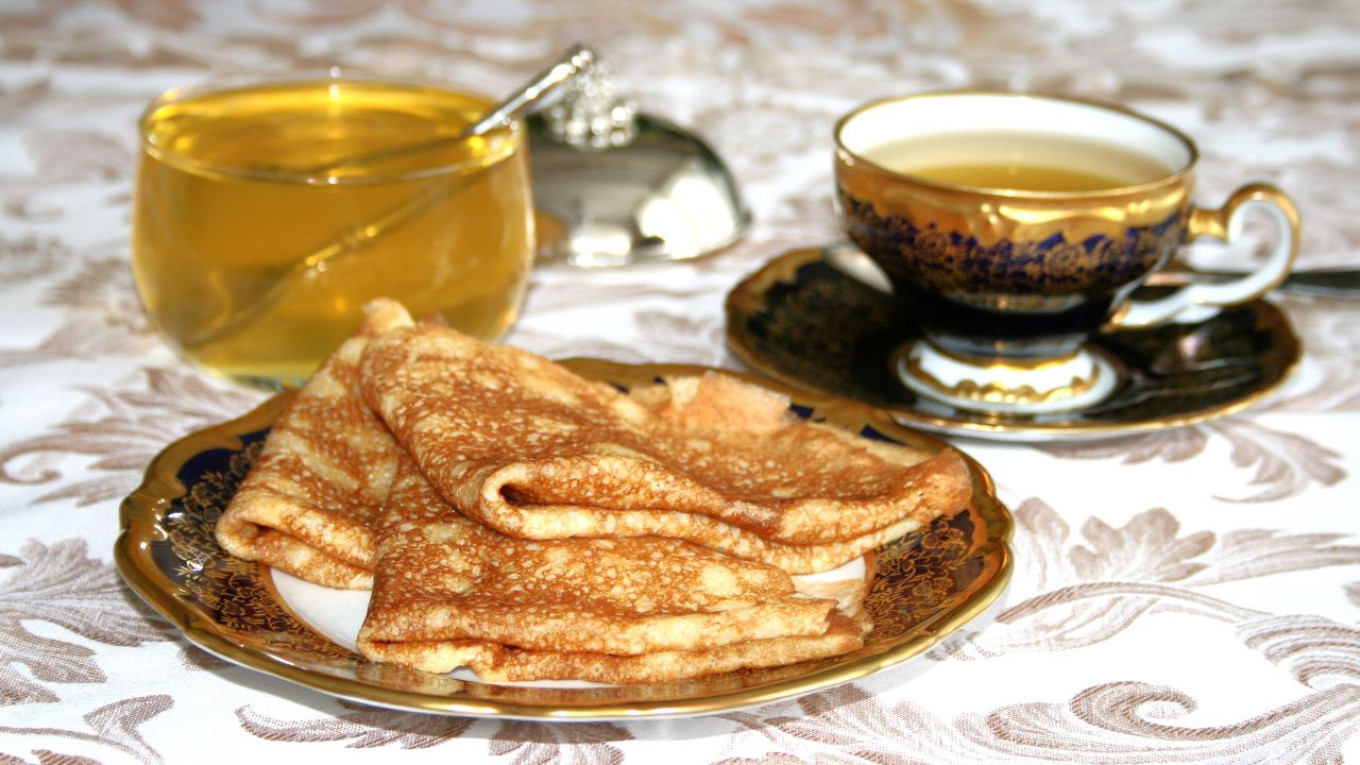Maslenitsa — the week before the start of Lent — is a time of gastronomic madness and blini-eating records. This weekend Maslenitsa comes to an end. For most Russians it has always been a short holiday of abundance in the middle of ordinary and gray everyday life. That's why no one wants to see Shrovetide — what Russians call Maslenitsa, Butter Week or Cheese Week — end. If only it would last just one more day!
Before the Soviet era Shrovetide really was a national holiday, especially in Moscow, where at the beginning of the 20th century it was celebrated more boisterously than in other Russian cities. During this week theaters were crowded, but there was also a special Shrovetide festival at the city Manege (riding arena). The newspaper "Moskovsky Listok" for 1910 describes the picturesque holiday scenes of those years:
"All kinds of conveyances, from a magnificent carriage to the tattered sled of a poor cabbie, keep driving up to the Manege. Mounted gendarmes stand at the entrance, trying with all their might to maintain order.
“Inside, the riding arena is packed; everyone is waiting for the Shrovetide procession to begin. Finally the crowd stirs with excitement. The procession makes its way around the arena. At the head of the procession is a gigantic blin followed by a crowd of cooks in white caps and aprons. Each of them holds blini, fish, caviar, butter, sour cream or another of the indispensable treats of Shrovetide.”

In the south of the country on the Don, people really knew how to have a party. A fine example of their capacity for a celebration was the Cossack Shrovetide, described here by Vladimir Bronevsky and published in 1834 in his "History of the Don Army":
"On Forgiveness Sunday (the last day before Lent begins when everyone asks their friends and family for forgiveness), in every noble house a table with appetizers is placed in the middle of the hall. Blini are the centerpiece all week, and everyone who steps inside must at least taste them so as not to offend the hostess.
“On the last day of Maslenitsa, all through the city people both drunk and sober run from house to house, on foot and on horseback, shooting, shouting and singing. Children make even more noise and commotion as they gallop through the streets, firing pistols and small cannons. If they don’t have weapons, they hide in doorways and shoot peas as passersby from hollowed-out bones. The town seems to be rioting, but this is just how the residents say a loving and peaceful farewell to Shrovetide and honor Forgiveness Sunday. On Monday, the first day of Lent, they will make the sign of the cross, bow down and dine on mushrooms and cabbage.”

If you think that is just the emotional and excitable southern nature on display, here’s how Shrovetide was celebrated in Poshekhonsky County, Yaroslavl Province, in 1854 — at the same latitude as Riga, Scotland and Labrador.
"At the peak of the partying young people dressed in costumes and pulled pranks on one another,” a contemporary wrote. “Ten or more horses were harnessed to a special large wagon. The horses were harnessed one after the other, like a line of geese. Each horse had a rider — a peasant wearing a sackcloth and covered with soot. One rider held a large whip, another a broom. Cow bells and rattles were hung everywhere. A covered cart made of filthy bast was hung with brooms. Next to the "passengers" was a barrel with beer and a trunk filled with food — pies, fish, eggs, pies and cakes. As the cart circled the Manege everyone ate and drank nonstop. The procession symbolized Maslenitsa coming to an end, “returning home.” Some people who wanted to keep the holiday going at least for a little while, would stop the procession and ask them to stay and treat everyone for just one more day.
“Finally, after seeing off Maslenitsa, everyone’s favorite holiday, this way, what is left for partyers to do before Clean Monday, the first day of Lent? No one wants to work; everyone is hungover and suffering from a splitting headache. Let’s keep at it — stretch out Maslenitsa for one more day. That’s what our men do. On Monday of the first week of the Lent, bright and early, they drink up the rest of the wine and beer — to ‘rinse out their mouths.’ Then the group of men go from house to house, eating what's left and licking the plates clean right down to the last drop, and then by evening they are so drunk they can barely put one foot in front of the other. On Tuesday morning they do the same, only not so quickly or with the same enthusiasm. But they aren't depressed or despondent. In the evening they say their final good-byes to Shrovetide."

Maslenitsa was the apotheosis of joy and celebration among the population. In a few days each family tried to make up for long months with not enough nourishment, secretly hoping that some time in the future every day would be filled with the same joy as during Maslenitsa.
Today, of course, you won’t thrill anyone with ordinary blinis. We are used to better food all year round now. But blinis can be elegant and modern. At Shrovetide we often make this version of thin, delicate pancakes with crème brûlée. Actually, we make them whenever we want to give our guests a real treat.
Delicate Milk Blinis
For 25-30 pancakes
Ingredients
- 200 g (1 2/3 c) flour
- 500 ml (2 c and 2 Tbsp) milk
- 2 eggs
- 2 Tbsp sugar
- 1/2 tsp salt
- 1 tsp vegetable oil
- To grease the pan: vegetable oil or a piece of pork fat
Instructions
- Lightly whisk the eggs.
- Sift the flour into a bowl. Add the granulated sugar and salt, 250 ml (1 c ) of milk and stir thoroughly to make a smooth batter with no lumps.
- Add the eggs and mix again.
- Gradually add the milk and stir to make a smooth batter. Watch the consistency: the batter should be the consistency of 1% fat kefir, that is, very thin. The trick to making this kind of thin batter is to gradually add the liquid to the flour, not add the flour to the liquid.
- Add the vegetable oil. Stir once more and leave for 20-30 minutes. Do not whisk the batter! If you do, you won’t get lacy pancakes.
- Fry the blinis in a hot, greased frying pan.
- Don’t butter these thin blinis when they come off the pan. Stack them or fold them in half. Later you can either heat them in a frying pan with melted butter or roll them up with your favorite filling.
And speaking of filling… crème brûlée! It's not hard to make this at home.

Crème Brûlée for Blinis
Ingredients
- 400 ml (1.7 c or 14 oz) 35% fat cream.
- 5 egg yolks
- 100 g (1/2 c) sugar
- 30 g (generous 3 Tbsp) corn starch
- 1/4 tsp salt
- Vanilla extract
Instructions
- Mix the sugar with salt and starch.
- Add half of the cream, vanilla extract and egg yolks. Stir with a whisk and add the rest of the cream. Stir to combine.
- Place on a low heat (or water bath) and, stirring constantly, beat until it is thickened. The cream should hold well on a spoon or whisk.
- Cover with cling film, pressing it to the surface. Cool and then place in the refrigerator for 3-4 hours or overnight.
- Fill the blinis with the crème brûlée as pictured above and serve. If you wish, you can sprinkle the crème brûlée with sugar and heat with a kitchen torch until caramelized (as in a classic crème brûlée recipe).
A Message from The Moscow Times:
Dear readers,
We are facing unprecedented challenges. Russia's Prosecutor General's Office has designated The Moscow Times as an "undesirable" organization, criminalizing our work and putting our staff at risk of prosecution. This follows our earlier unjust labeling as a "foreign agent."
These actions are direct attempts to silence independent journalism in Russia. The authorities claim our work "discredits the decisions of the Russian leadership." We see things differently: we strive to provide accurate, unbiased reporting on Russia.
We, the journalists of The Moscow Times, refuse to be silenced. But to continue our work, we need your help.
Your support, no matter how small, makes a world of difference. If you can, please support us monthly starting from just $2. It's quick to set up, and every contribution makes a significant impact.
By supporting The Moscow Times, you're defending open, independent journalism in the face of repression. Thank you for standing with us.
Remind me later.







